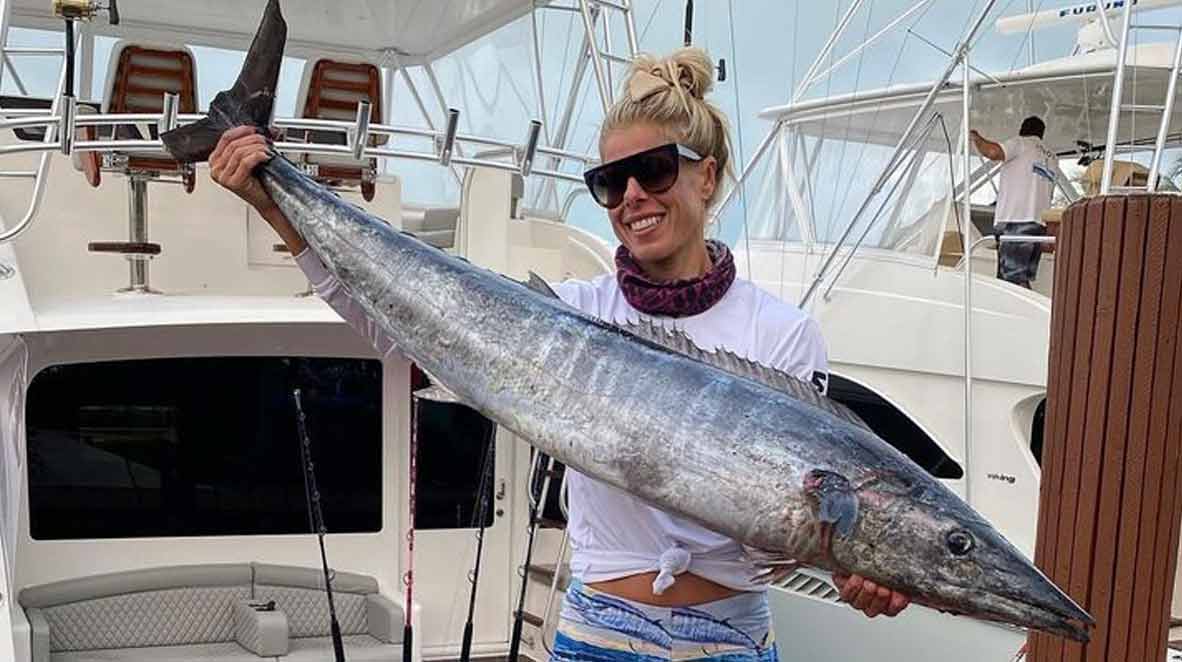If you're like me, you've probably wondered what the differences are between freshwater and saltwater fish. Why do some prefer to fish in saltwater and others in freshwater? And as an angler, why should you care?
First, the basics: fish are animals with backbones that live in water and breathe through gills. They can move through the water because their bodies are streamlined and they have fins. They are all different sizes, shapes, and colors. Most of them are cold-blooded. Generally, that’s where their similarities end.
Some fish live in freshwater, like lakes, rivers, and streams. Others live in saltwater, like the seas and oceans. Some, like the salmon, breed in freshwater, go back to the ocean, and eventually come back to freshwater to breed. I’ll spare you the tedious details, which you can read more about here. But as an angler, you should know that some fish live in freshwater and can't survive in saltwater because their bodies are better adapted to the freshwater environment. The same goes for saltwater fish, which are better adjusted to seawater.
Size
In terms of size, they’re vastly different. Although they both come in all sizes, saltwater fish can grow much bigger than freshwater fish. This is because the ocean is huge, which gives them plenty of room.
Guinness World Records says that a 13-foot (3.98 m) freshwater stingray caught in Cambodia in June 2022 holds the record for the largest freshwater fish ever caught. By comparison, the largest saltwater fish ever caught was a filter-feeding whale shark. It was caught in the Arabian Sea off the coast of Veraval, Gujarat, India, in May 2001, measuring 61 feet and 8 inches long (18.8 m).
Diet
Knowing the natural food of fish is important for several reasons. It can help you figure out what kind of bait or lure to use. This is called "matching the hatch" among anglers. It can also help you figure out when to fish based on when those natural food sources are around. The diet of a fish depends on whether it is a carnivore (meat-eating), herbivore (plant-eating), or omnivore (eats both meat and plants). Saltwater fish mostly eat algae, seagrass, plankton, insects, krill, and other fish. Freshwater fish eat insects (like crickets, grasshoppers, and mayflies) and worms.Behavior
Saltwater fish tend to be more aggressive, powerful, and more challenging to land than freshwater fish, so if you go fishing in the ocean, be ready to put up a fight. This is why saltwater rods, reels, and lines are made to be stronger. Most people who have never fished before are told to start in fresh water until they know how to use their gear and can can move on to saltwater.

Most Common Freshwater and Saltwater Fish in the US
What are some of the most common freshwater and saltwater fish you might catch in the US? According to the 2016 National Survey of Fishing, Hunting, and Wildlife-Associated Recreation, these are the fish that most anglers tried to catch:
In freshwater, except the Great Lakes:
Black Bass (Largemouth, Smallmouth), Panfish, Trout, Catfish/Bullhead, Crappie, White Bass, Striped Bass, and Striped-Bass Hybrids
In the Great Lakes:
Walleye/Sauger, Salmon, and Steelhead
Finally, in saltwater: Red Drum (Redfish), Striped Bass, Flatfish (Flounder, Hybrid), Sea Trout (Weakfish), Bluefish, and Salmon.
Knowledge is power when it comes to improving as angler. The more you know about fish, the better prepared you will be to catch them, and the more you will enjoy sportfishing and its many aspects. So do you prefer catching freshwater fish, or saltwater fish?
MOST READ NEWS:
How To Use Your Fishing Records to Catch More Fish
Track your fishing trips, analyze patterns, and refine your techniques with a fishing log to catch more fish on every outing!
Solo Fishing Safety Tips: Stay Safe and Enjoy the Outdoors
Learn essential solo fishing safety tips: gear checklist, boat safety, emergency preparedness, weather monitoring & fishing location scouting. Stay safe on the water.
Secrets to Winter Fly Fishing Success
Master winter fly fishing with expert tips on trout behavior, essential gear, and proven techniques. Learn the secrets to catching more fish in cold weather.
How Cold Water Changes Fish Behavior: Insights for Anglers
Explore how cold water affects fish behavior and fishing techniques, enhancing your angling success and strategy.
Is Tech Making Fishing Too Easy? Exploring Forward-Facing Sonar (FFS)
Learn about forward facing sonar in fishing - what it is, how it works, rules for tournaments, ethics, and tips for finding fish with this game-changing technology.
Plan Your Best Fishing Trip Yet this 2025: A Complete Guide
Plan your fishing trip this off-season. Learn to choose destinations, prep gear, pick bait, and trust Baitium for expert tools and tips!
15 Fishing Resolutions for 2025: Set Yourself Up for Success
Discover 15 essential fishing resolutions for 2025: tackle organization, gear maintenance, angling techniques, conservation tips, tournament prep, and fishing safety guidelines.


